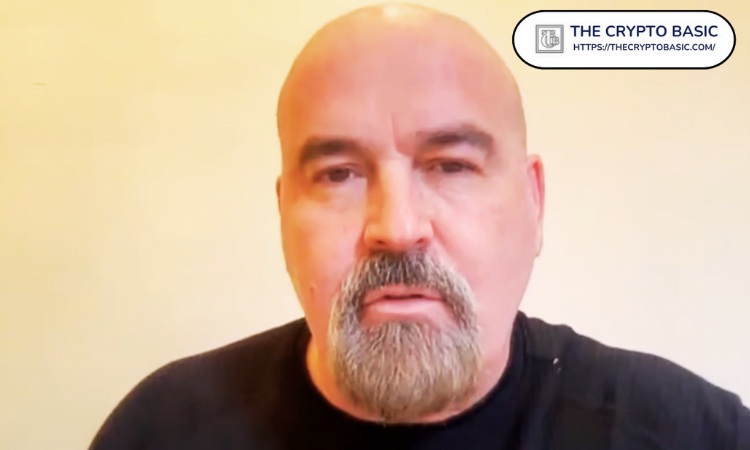Attorney Deaton says XRP secondary market transactions are not securities.
Prominent cryptocurrency advocate and lawyer John Deaton has taken to Twitter to assert that XRP secondary market transactions are not securities.
Former SEC Director’s Opinion on Secondary Market Transactions
Attorney Deaton made this known in reference to a tweet by former SEC director Marc Fagel. During a lengthy conversation on Twitter, a crypto enthusiast asked a question about purchasing XRP on the secondary market. The user asked whether the transaction would imply that he had entered into an investment contract with any entity.
In response, Fagel, who recently joined Deaton in a Live Cast regarding the Hinman emails, said the question assumes that the secondary market transactions require Howey analysis.
He noted that the question could also mean that if the seller initially issued the asset to the public as securities, then the instrument being traded on the secondary market would remain securities.
However, he stressed that the point raised is an open legal question.
That question assumes the secondary market transactions require a Howey analysis. This is by no means clear. It could also be that, if the seller has issued securities to the public, then the instruments being traded remain securities. I think it's an open legal question.
— Marc Fagel (@Marc_Fagel) June 19, 2023
Interestingly, attorney Deaton delved into the conversation, saying that the existing case law favors that the Howey test needs to be applied at each subsequent sale.
Deaton’s Hypothetical Scenarios
The prominent lawyer raised two hypothetical scenarios involving XRP to bolster his point further.
First Hypothetical Scenario
The first scenario involves a series of transactions, ranging from Ripple to TapJets, a private jet service that accepts XRP as a payment method.
According to attorney Deaon, the transaction involves Ripple selling XRP to a business named Johnny Crypto, which later pays its employees using the crypto asset.
“The employee owes his friend $500, but, instead, he gets the friend to accept 1K XRP. The friend has the $1K XRP sent to his @UpholdInc XRP address. That friend hires @attorneyjeremy1 to write up a contract and asks Jeremy if Jeremy will accept XRP as payment, which Jeremy does,” attorney Deaton continued.
After adding the asset to his “already large bag of XRP,” the price of the asset spikes to $10 per unit. Jeremy, who was in Florence, Italy, tries to return to his base on Friday. However, Jeremy had to contact TapJets for a private jet since the company accepts XRP as a payment method.
Per Deaton, if Howey is not applied to every transaction and XRP is deemed as a security due to Ripple’s initial sales, then everyone involved in the transaction will be considered to be in a common enterprise with the leading blockchain company.
If you don’t apply Howey at the time of each transaction and XRP is a security per se b/c Ripple sold to a guy name Johnny Crypto then, in effect, Johnny Crypto, his employee, the employee’s friend, Jeremy Hogan, Uphold, and TapJets are all in a common enterprise w/Ripple.
— John E Deaton (@JohnEDeaton1) June 19, 2023
Second Hypothetical Scenario
Secondly, Deaton narrated another hypothetical scenario. This time, it involves buying a car with Bitcoin via SpendTheBits, an XRPL-powered crypto payment mobile app, while paying fees in XRP.
“You can spend $100K #BTC buying a car using the SpendTheBits app, and it will cost you .00005XRP to do it. According to the SEC, the $100K in #BTC is not a security, but the .00005 XRP (fraction of a penny) are securities,” Deaton added.
@Spend_The_Bits uses #XRP to spend #BTC. You can spend $100K #BTC buying a car ? using the SpendTheBits app and it will cost you .00005XRP to do it. According to the SEC the $100K in #BTC is not a security but the .00005 XRP (fraction of a penny) are securities. ?♂️
— John E Deaton (@JohnEDeaton1) June 19, 2023
The Underlying Asset Is Not a Security
Attorney Deaton highlighted several cases, including Telegram and Aqua-Sonic, which prove that the underlying asset is not a security.
Conclusively, Deaton asserts that the SEC has nothing to support its theories that secondary market sales are securities. He also disagreed with people who argued that the SEC has the right to pursue novel theories.
“The SEC has the authority provided by Congress and existing law. And if they push novel, unsupported theories, then say Hello, Fair Notice Defense,” attorney Deaton added.
The SEC has the authority provided by Congress and existing law. And if they push novel, unsupported theories, then say Hello, Fair Notice Defense.
— John E Deaton (@JohnEDeaton1) June 19, 2023
DisClamier: This content is informational and should not be considered financial advice. The views expressed in this article may include the author's personal opinions and do not reflect The Crypto Basic opinion. Readers are encouraged to do thorough research before making any investment decisions. The Crypto Basic is not responsible for any financial losses.



